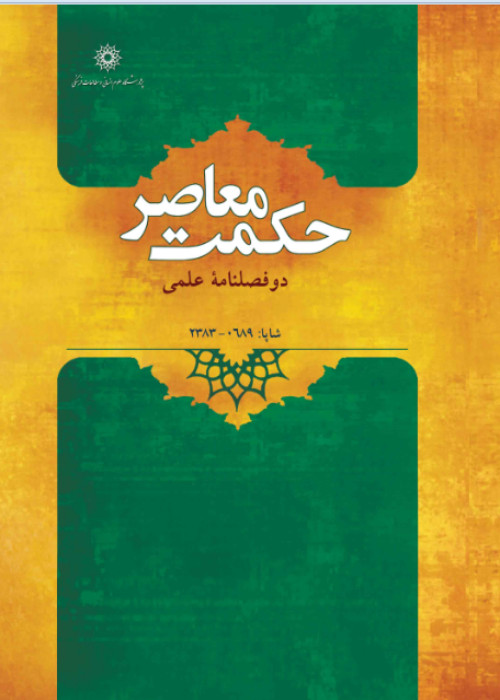The Relation between Divine Knowledge and the Known from Mystical and Sadraean Perspectives
The question of the role of knowledge in the realization of the known is crucial to philosophical and mystical theological studies. Mystics and Sadraean philosophers have adopted different views of the efficacy or inefficacy of knowledge in the known as well as their account of how knowledge affects the known. The goal of this research is to uncover the view of Islamic mysticism and Transcendent Wisdom concerning the issue.
This research draws on the method of analysis and comparison to provide an analytic comparative consideration of the mystical and Sadraean view of the issue. Moreover, it was carried out based on library data.
When it comes to the semantics of the relation between knowledge and the known in the mystical approach, we might discern three different positions in the words of mystics. First, the known is not made by knowledge in the sense that God’s knowledge does not play a role in how Immutable Entities (al-a‘yān al-thābita) are. Indeed, God knows such entities as they are, without making or changing them. By an analogy of our knowledge of the impossible, Ibn ‘Arabī explicates the notion of knowledge being subordinated to the known, in that it is not our knowledge that makes it impossible, nor can it stop it from being impossible. The second notion of subordination is the correspondence between knowledge and the known. That is, what is original is the known entity as it is present an Immutable Entity, and it is knowledge that corresponds to it, although the ontological subordination of the known with respect to knowledge is a well-acknowledged fact in Islamic mysticism. This remark by Fanārī is in obvious conflict with the first view concerning the semantics of the subordination of knowledge with respect to the known according to which the former is posterior to the latter. Such differences in the semantics of subordination indicate that there is no consensus over the notion of knowledge being subordinated to the known, as it shows that the dispute is not merely verbal. The third notion of subordination refers to that of the relation to its relatum. Moreover, on the Sadraean view, knowledge’s subordination to the known is accounted for in the third mystical sense. To illustrate, we should note that by the known here we mean the essentially known, which consists in the Immutable Entity or the epistemic form. Accordingly, for knowledge to be knowledge it needs to belong to a known entity, where belonging is a relation that needs, and is posterior to, its relatum, although the posterity is hierarchical rather than temporal, and thus it does not lead to the occurrence of events in God’s essence. Furthermore, when he deals with the problem of knowledge’s subordination to the known, Mullā Ṣadrā often distinguishes active and passive knowledge, tethering the response to the question of knowledge’s subordination of the known to the varieties of the distinction. That is, since knowledge is the origin of the instantiation of the external known entity, it cannot be posterior to the known, but in passive knowledge as such, the knowledge in question is necessarily posterior to the external known entity. What is more, Ṣadr al-Muta’allihīn provides a significant research concerning the differences between the views of Muslim mystics and Mu‘tazilī theologians, in which he notes the differences between the two views, referring to epistemic and objective (concrete) obtainment (or immutability) as two varieties of obtainment. He accounts for the view of Muslim mystics that Immutable Entities obtain prior to their concrete or objective existence in terms of epistemic obtainment. In this connection, he also points to the mode of existence of Immutable Entities. According to Mullā Ṣadrā, since such entities exist by God’s existence, they are not created by God, which is unlike the existential condition of existential objective entities that are made and created by God.
In Mullā Ṣadrā’s view, knowledge’s subordination of the known corresponds to the third mystical sense. Moreover, relying on his principle of the primacy of existence, Mullā Ṣadrā tends to believe that the known is not made by knowledge, with knowledge not contributing to the known. Sadraean and mystical accounts agree over the idea that Immutable Entities are essentially determined, non-made realities, which is why the divine knowledge does not affect such entities in God’s essence.
- حق عضویت دریافتی صرف حمایت از نشریات عضو و نگهداری، تکمیل و توسعه مگیران میشود.
- پرداخت حق اشتراک و دانلود مقالات اجازه بازنشر آن در سایر رسانههای چاپی و دیجیتال را به کاربر نمیدهد.


